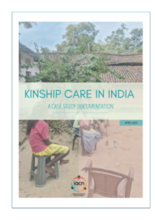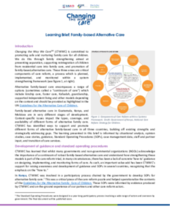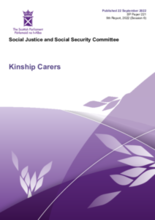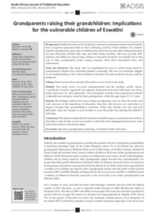Displaying 31 - 40 of 586
This webinar explores approaches to supporting kinship care during crises (including political and economic crises in Lebanon); the support needs of Ukrainian refugees in kinship care in the UK and examples of how cross-border placements into kinship care can be effectively supported.
This IACN report outlines the importance of families for the emotional, physical, and cognitive growth of children. The authors discuss that all efforts should be made to provide family-based care to children without parental care, and institutionalisation should be a measure of last resort for the optimum development of children. The report draws on the experiences of eight families in kinship care arrangements and the children placed with them.
In this short video, practitioners from across the region discuss why supporting kinship care is so important, the support needs of kinship care families, and lessons learnt in supporting kinship care.
This learning brief was developed as part of Changing the Way We Care's 2022 annual report and shares learning on family-based alternative care from Guatemala, Moldova, India and Kenya and links the reader to additional CTWWC resources on the topic.
This article explores the concept of solidaridad, considers its enduring currency in kinship discourse in Spain, and analyzes various case studies from the authors' respective research projects.
Kinship care (care by extended family or friends of the family) is the most common form of alternative care in the region, yet also the least well-supported. This webinar explains why it is vital to invest in kinship care and provide examples of promising practic
The Scottish Parliament’s Social Justice and Social Security Committee has published its latest report on kinship carers, calling for improved support for carers.
The study aims to comprehend the ways in which being raised by grandparents, influence the vulnerable children’s schooling. The aim is to contribute insights to our understanding on how these children’s education towards academic success could be enhanced.
This webinar shares the process that Family for Every Child is using to facilitate the development of global inter-agency guidance on Kinship Care, aimed at policy makers and programme managers.
This study explores the state of kinship care in British Columbia (BC), Canada 10 years after the implementation of major policy reform designed by the provincial government to improve services to kinship caregivers.






